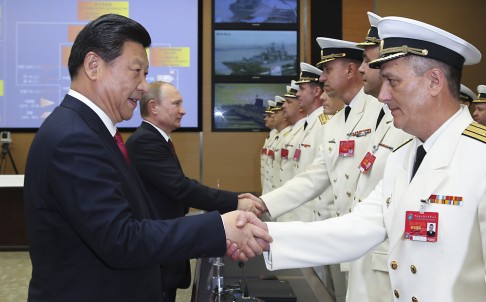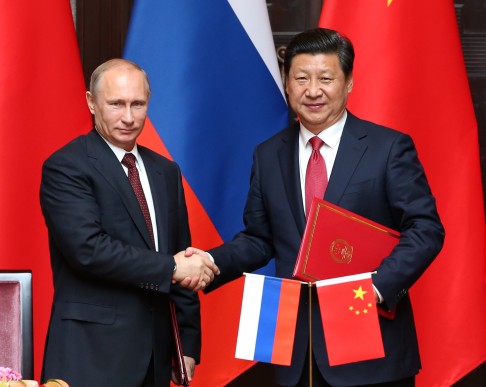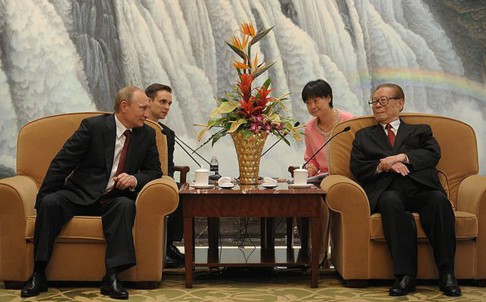- Joined
- Nov 3, 2008
- Messages
- 1,583
- Points
- 48
http://www.telegraph.co.uk/finance/...ir-Putins-biggest-coup-has-come-in-China.html
Vladimir Putin's biggest coup has come in China
Russia's President has set in motion a potentially profound change in global gas markets
Russia's new pipeline to China could increase the cost we pay for natural gas here in the EU*Photo: Getty Images
By Telegraph staff8:42PM BST 21 May 20141 Comment
Russia’s President Vladimir Putin has delt his opponents in the West a significant blow by signing one of the biggest energy deals in history.
Worth an estimated $400bn (£237bn) over a period of 30 years, the agreement with China will link gas fields deep in the wastes of Siberia via huge cross-border pipelines with some of the Asia’s fastest growing cities.
In one stroke of his pen, Mr Putin has turned the tables on the US, which had hoped to unleash its own energy weapon on Russia in the form of exporting shale gas to Europe and opening up its 700bn-barrel Strategic Petroleum Reserve. Both measures would undermine the Kremlin’s vice-like grip on European energy supply and add to the economic pressure building on Russia to backdown over Ukraine.
However, by opening up access to potentially the world’s biggest energy market in Asia by 2018, Mr Putin has also set in motion a potentially profound change in global gas markets. The economics behind many multi-billion-dollar liquified natural gas (LNG) projects aimed at feeding Asia’s energy demand suddenly don’t add up so well either. Eventually, the free flow of gas between East and West could even lead to British consumers paying more for their energy bills as utilities have to compete for gas with Asia.
Aled Jones, director of the Global Sustainability Institute at Anglia Ruskin University, has pointed out that the 38bn cubic metres per year of gas that Russia has agreed to supply China is greater than the 34bn cubic metres that Moscow currently supplies Europe annually. In effect, the deal with China reduces Russia’s dependence on Europe as the main market for its gas.
Vladimir Putin's biggest coup has come in China
Russia's President has set in motion a potentially profound change in global gas markets
Russia's new pipeline to China could increase the cost we pay for natural gas here in the EU*Photo: Getty Images
By Telegraph staff8:42PM BST 21 May 20141 Comment
Russia’s President Vladimir Putin has delt his opponents in the West a significant blow by signing one of the biggest energy deals in history.
Worth an estimated $400bn (£237bn) over a period of 30 years, the agreement with China will link gas fields deep in the wastes of Siberia via huge cross-border pipelines with some of the Asia’s fastest growing cities.
In one stroke of his pen, Mr Putin has turned the tables on the US, which had hoped to unleash its own energy weapon on Russia in the form of exporting shale gas to Europe and opening up its 700bn-barrel Strategic Petroleum Reserve. Both measures would undermine the Kremlin’s vice-like grip on European energy supply and add to the economic pressure building on Russia to backdown over Ukraine.
However, by opening up access to potentially the world’s biggest energy market in Asia by 2018, Mr Putin has also set in motion a potentially profound change in global gas markets. The economics behind many multi-billion-dollar liquified natural gas (LNG) projects aimed at feeding Asia’s energy demand suddenly don’t add up so well either. Eventually, the free flow of gas between East and West could even lead to British consumers paying more for their energy bills as utilities have to compete for gas with Asia.
Aled Jones, director of the Global Sustainability Institute at Anglia Ruskin University, has pointed out that the 38bn cubic metres per year of gas that Russia has agreed to supply China is greater than the 34bn cubic metres that Moscow currently supplies Europe annually. In effect, the deal with China reduces Russia’s dependence on Europe as the main market for its gas.







